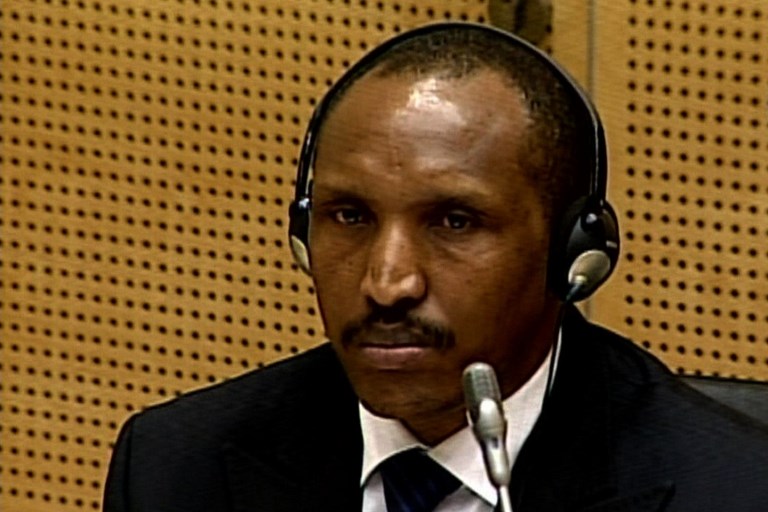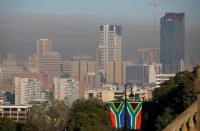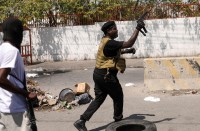
THE HAGUE, Netherlands (AFP) — International judges will hear closing arguments Tuesday in the case against former Congolese warlord Bosco Ntaganda, accused of war crimes including using child soldiers and sex slaves in his rebel army.
Once known as “The Terminator”, Ntaganda faces 13 counts of war crimes and five counts of crimes against humanity for his role in a brutal civil conflict in the DR Congo’s volatile east more than 15 years ago.
The Rwandan-born Ntaganda in September 2015 pleaded not guilty to the charges at the start of his trial before the International Criminal Court.
Prosecutors at the Hague-based tribunal say his rebel army in 2002 and 2003 conducted a reign of terror in the vast central African country’s northeast Ituri region, unleashing horrific abuses on local inhabitants.
Ntaganda was central to planning operations for his Patriotic Forces for the Liberation of Congo (FPLC), using child soldiers and coercing women into sexual slavery while attacking civilians on ethnic grounds, prosecutors say.
The charismatic commander, a feared ex-general with a penchant for cowboy hats and fine dining, gave the orders and provided logistics and weapons to his troops, the prosecution say.
At least 800 people were killed by the FPLC as it battled rival militias for control of the mineral-rich area.
Prosecutors single out Ntaganda for allegedly leading a November 2002 attack on the gold mining town of Mongbwalu that lasted six days and left 200 villagers dead.
‘Soldier, not criminal’
Ntaganda, aged around 44, during his trial balked at the “Terminator” nickname and told judges he was a “soldier, not a criminal”.
“I never attacked civilians, on the contrary, your honours, I protected them,” he said.
The first-ever suspect to voluntarily surrender to the ICC, Ntaganda walked into the US embassy in Kigali in 2013 and asked to be sent to the court.
Ntaganda is a founding member of the M23 rebel group, which was eventually defeated by Congolese government forces five years ago.
Fighting in the eastern DRC has left some 60,000 people dead since 1999, exacerbated by the wealth of mineral resources in the region, notably gold and minerals used in electronic products.
This week’s hearings will run from Tuesday to Thursday with Ntaganda himself expected to make a statement towards the end of the hearings. It could take months, even years, before the ICC’s judges hand down a verdict.
The three-day hearing is set to be followed with interest after the surprise acquittal of another former Congolese leader, Jean-Pierre Bemba.
Initially sentenced to 18 years for war crimes committed by his troops in the Central African Republic, Bemba was acquitted on appeal in June. He has since returned to Kinshasa.
However, Ntaganda’s former FPLC commander, Thomas Lubanga, was sentenced to 14 years in jail in 2012. That was the second conviction by the court since it was set up 16 years ago.
© Agence France-Presse







